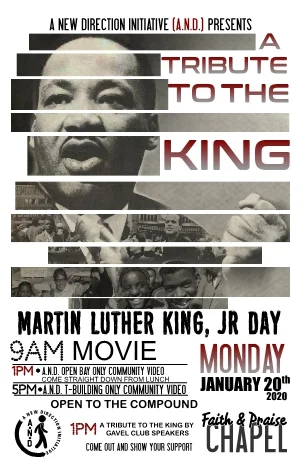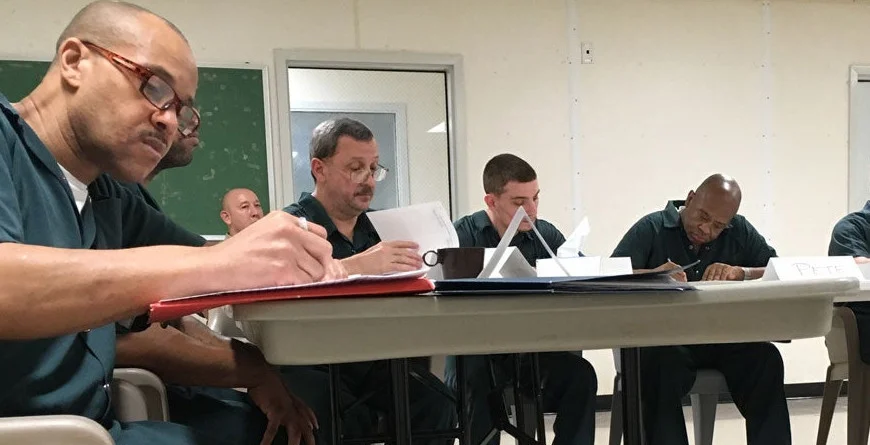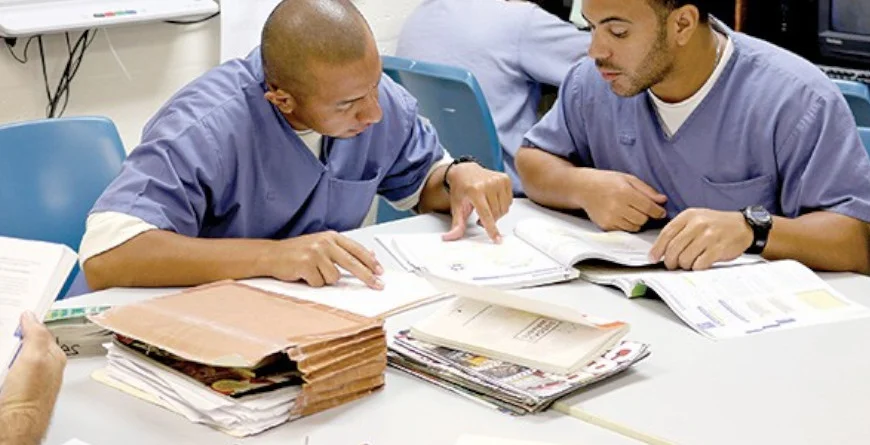


WHO WE ARE
A.N.D. is a comprehensive Rehabilitation movement at Desoto Correctional Institution that inspires and guide individuals to make choices each day that lead to healthier and happier lives. We run a community of accountability and encouragement so that every man who is truly committed to change has the choice and the chance to reboot his life. We strive to empower these men to move from being tax consumers to taxpayers; from gang leaders to servant leaders; and from felons to real fathers, real neighbors, real sons and real husbands.
Our vision is to see these men get out of prison and stay out. So their children do not go to prison and continue an intergenerational cycle of incarceration.
Our Vision
To become a trusted global platform where every act of generosity fuels real, lasting progress in communities most in need.
Our Mission
- Connect Global Donors
- Deliver Impactful Aid
- Build Resilient Futures

WHAT WE DO
We utilize leading change theory/strategies, and Evidence Based Practices to help our participants in their efforts toward change. “Evidence based”—meaning it is modeled after a program shown to reduce recidivism and actually operates in the same manner as the proven program.
Our curriculums and classes are built on the foundation of theoretical underpinnings and Evidence Based Practices that have been proven to promote positive behavior change.
CHANGE THEORY/STRATEGIES
2016
Motivational Interviewing
Motivational Interviewing helps people get unstuck in motivation for change by addressing ambivalence and reluctance through a person-centered and collaborative approach.
2017
Cognitive-behavioral Therapy
Cognitive-behavioral Therapy aims to correct maladaptive patterns of thinking and behaviors that contribute to an individual’s problems through increased mindfulness.
2022
Structured Expressive Writing
Structured Expressive Writing involves writing about a specific topic, such as a life-changing event, in order to disclose and process related thoughts and emotions.
2025
The Transtheoretical Model of Change
The Transtheoretical Model of Change uses practical methods for enhancing readiness and promoting positive change along a continuum of five stages of change.
EVIDENCE BASED PRACTICES
2016
Motivational Interviewing
Research shows that in-prison and other correctional rehabilitation programs that are effective at reducing recidivism—whether they are education, substance use, mental health, or other types of programs—generally possess key principles that make them effective. These key principles are Evidence Based and Focused on Highest-Risk and Highest-Need Inmates.
Program Structure Should Be Evidence Based
According to research, “evidence based” programs are most-likely to be effective at reducing recidivism. To be evidenced based, a program must be both of the following:
- Research Based. Programs that are research based are designed to be similar to programs that have undergone rigorous evaluations showing that they reduce recidivism.
- Implemented With Fidelity. A research-based program that is implemented with fidelity not only is designed to be similar to a proven program, but also actually operates in the same manner to the proven program. Ensuring that the program is implemented with fidelity to a research-based model increases the likelihood for it to successfully reduce recidivism.



Program Focus on Highest-Risk and Highest-Need Inmates
Research has shown that targeting rehabilitation programs towards the highest-risk, highest-need offenders has the greatest potential to reduce recidivism rates. For example, a 2010 study of certain rehabilitation programs in Ohio found that high-risk offenders who remained in programs over one year had an 8 percentage point lower recidivism rate than high-risk inmates who did not participate or participated for less than one year.
On the other hand, low-risk inmates who remained in programs for over one year had a 7 percentage point higher recidivism rate than those who did not participate or participated for less than one year. Accordingly, by providing effective rehabilitation programs to its highest-risk, highest-need inmates, the program could avoid the greatest number of future crimes.
A.N.D. selects the assessment tools most effective at determining which inmates are the highest-risk to recidivate and have the highest-need.



